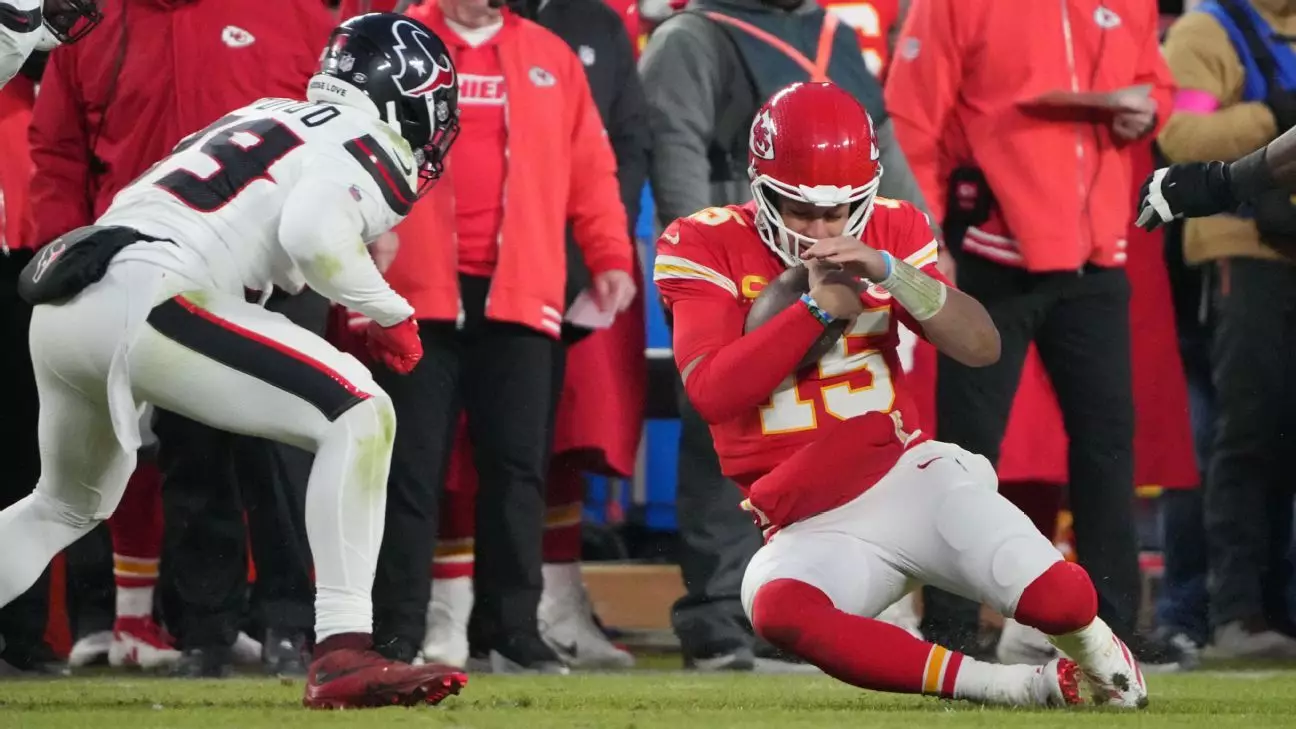In recent seasons, the discourse surrounding officiating in the NFL has intensified, with particular focus on high-profile players like Kansas City Chiefs quarterback Patrick Mahomes. Critics argue that Mahomes receives preferential treatment in terms of penalty calls. However, a potential solution is on the horizon as discussions about expanding the Replay Assist system gain traction for the upcoming 2024 season. This system, first introduced in 2021, was designed to provide additional support to on-field officials by allowing replay officials to assist with specific calls using video evidence. This article delves into the implications of these changes and what they could mean for the league, players, and fans alike.
Initially, the Replay Assist system was limited to addressing clear instances of penalties and critical game situations. It focused on matters such as ball placement, determining the completeness of passes, and ruling on whether a foul had occurred. As the NFL continues to teeter on the edge of technological integration and preserving the human element of officiating, tweaks to this system are becoming essential. Recently, league insiders have indicated that the addition of key areas for review—like quarterback slides and head hits—will be discussed.
This proposal comes amid ongoing frustration regarding inconsistent officiating and its impact on game dynamics. During the recent AFC divisional playoff matchup where the Chiefs faced off against the Texans, a controversial 15-yard penalty against the Texans for unnecessary roughness on Mahomes reignited the debate about the treatment of star quarterbacks. Critiques from notable figures like ESPN analyst Troy Aikman highlighted the need for improved clarity in penalty calls, particularly for QBs who are often viewed as both runners and passers on the field.
The discussion surrounding quarterback treatment is not merely about favoritism; it also implicates broader concerns about player safety. As Mahomes himself pointed out, the officiating crews strive to maintain fairness in their calls. He emphasized that while he understands players‘ concerns about the rules governing quarterback protection, he does not believe the Chiefs benefit disproportionately from referee decisions. Perhaps this narrative deserves deeper scrutiny, given the inherent complexities of quarterbacking in a league that emphasizes both offensive creativity and defensive aggression.
Aikman’s comments illustrate that many in the football community perceive a disconnect between the reality of on-field actions and the rules governing them. Notably, players such as Will Anderson Jr. from the Texans have echoed concerns that officiating can sway the outcome of games. This led to his candid acknowledgement that they anticipated a struggle against not only the Chiefs but also the referees. Such sentiments signal an urgent need to reassess how the rules are interpreted and enforced, particularly as the league leans more heavily on replay technology.
As the NFL’s competition committee prepares to convene, discussions around i with replay assist will likely dominate the agenda. By adding the scrutiny of quarterback slides and other nuanced penalties to the replay review system, the league could aim to bring more fairness and uniformity to the game. As with any change, however, it is imperative to balance the efficiency of decision-making processes with the protection of the game’s integrity.
The anticipation for changes is palpable among players, coaches, and fans alike. The growing belief is that a more defined penalty structure could lead to better game flow and fairer outcomes. As part of an ongoing effort to enhance the overall viewing experience, the NFL may be poised to introduce a system where the excitement of the game does not hinge on subjective interpretations of calls.
Ultimately, as the NFL contemplates adjustments to the Replay Assist protocol, the overarching goal must remain clear: to ensure that the game thrives within a framework that values fairness, safety, and the integrity of competition. The possible expansions of the system reflect not only the evolving nature of officiating in professional sports but also the league’s commitment to addressing the concerns of all stakeholders. For fans, players, and teams, the coming season holds the promise of more objective officiating that can contribute to a more exciting and fair environment on the gridiron. With these discussions underway, the NFL stands at a vital juncture that could redefine how the game is played and perceived in its pursuit of excellence.


Napsat komentář